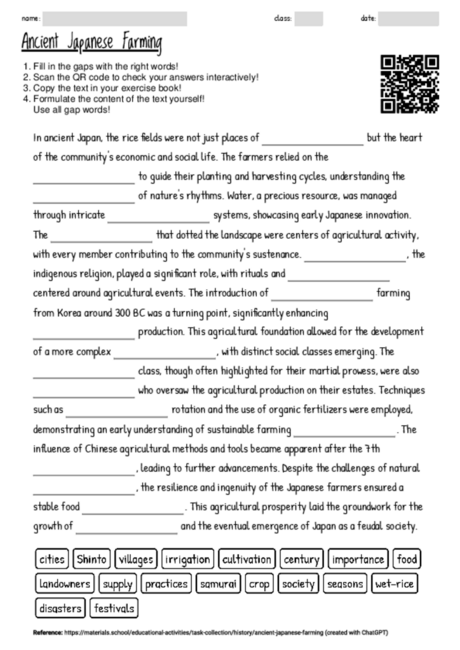Ancient Japanese Farming
Cloze texts, like the one created on ancient Japanese agriculture, offer a multifaceted approach to learning, especially for young readers. They engage students in a topic deeply by requiring them to fill in missing keywords, thus enhancing their understanding and retention of the subject. This particular text, focusing on the role of agriculture in early Japanese history, illuminates the intertwined nature of societal development and agricultural practices. It demonstrates how innovations in farming, such as the introduction of wet-rice cultivation and the development of irrigation systems, were pivotal in the evolution of Japanese society from a collection of small villages to a complex feudal system. The inclusion of cultural aspects, like the role of Shinto rituals, enriches students' comprehension of how agriculture influenced not only the economy but also the cultural and religious practices of the time. The emphasis on community effort and the challenges faced (like natural disasters) can foster discussions about resilience, innovation, and environmental awareness. By encouraging critical thinking about how societies adapt to their environments, this cloze text serves not only as a historical lesson but also as a broader lesson in environmental science and sociology.

